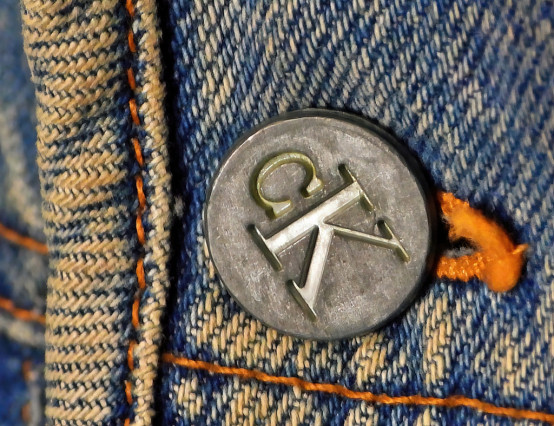On 10 February, Cressida Dick tendered her resignation as chief of The Metropolitan Police Federation. Despite previously expressing that she had no intention of leaving the role merely hours before this all, Dick expressed her “sadness and regret” after losing the confidence of the London Mayor, Sadiq Khan.
Khan’s loss of confidence in the former police Chief stems from his belief (or lack thereof) in her to tackle a report which found that misogyny, racism, bullying and sexual harassment had infiltrated the force. Dick reportedly refused to devise a plan and liaise with the mayor to tackle these issues, leading to her resignation.
Although many would be happy to see her go, this was not without some controversy of its very own. Priti Patel, the woman who will be responsible for finding and appointing the former Chief’s successor, has reportedly clashed over the issue with Khan. Not one to leave one of their own in uniform behind, Ken Marsh of The Metropolitan Police Federation expressed officers’ disappointment and that they have "no faith in Sadiq Khan".
One would have imagined that the ousting of such a controversial figure would be met with applause; Dick’s resignation though has exposed the cracks in what was already a police force that was fit to burst - so how did we get to this point?
Dick’s legacy
Dick’s legacy will forever be tarnished by dishonestly, prejudice and to be quite frank - incompetence. Somehow, she endured many controversies, which were each potentially career-ending.
The most infamous controversy under the former police chief’s tenure was the murder of Sarah Everard. Everard was murdered in cold blood by an officer under the banner of the police force. Wayne Couzens raped, murdered and burned her body despite a record and a nickname of ‘the rapist,’ none of which seemed to give cause for alarm as he slipped through the cracks of the vetting procedure.
As if this was not enough, the force went on to completely mishandle subsequent protests and vigils. The police clashed with women at vigils in what can only be described as a tone-deaf mishandling of what were meant to be tributes to the late Everard.
An enquiry found the police breached human rights, and yet nothing but a paltry apology was offered by Dick.
In 1987, Daniel Morgan father of two, who had been working as a private investigator, was attacked and killed with an axe in the car park of a pub in a murder case that remains unsolved. An independent panel found a salient reason why this remains unsolved is due to institutional corruption. The police force’s primary objective seemed to be to protect itself rather than deliver justice for Morgan.
Dick, who was Assistant Commissioner in 1987, had refused to give access to internal police systems. Yet again, all that she offered in solace was an apology as the case remains unsolved even to this day: thirty-five years later.
Dick first came into the public eye after the tragic, fatal police shooting of Jean Charles de Menezes. Menzes was mistaken for a suicide bomber and was shot by a firearm squad in Stockwell Tube Station on 22 July 2005.
Menezes’ family was offered an undisclosed settlement, and whilst the force at large was condemned, Dick was exonerated for her part in the murder of Menezes.
Unfortunately, this kind of posturing is a cross-partisan issue. It has been displayed most recently by Labour Deputy Leader - Angela Rayner, who declared that she believes that the police force should “shoot terrorists first, ask questions later”.
‘Operation Midland’ recruited Carl Beech, who claimed knowledge of child sexual abuse and exploitation by a number of high-profile individuals in Britain – accusations that were fabricated and did not happen. Beech himself was later found out to be a paedophile and guilty of the crimes he was accusing others of.
Dick knew this, yet she did nothing to correct the investigating officer on the case who thought otherwise. As a result, the force spent millions on the investigation and even more on compensating the accused, not to mention the reputational damage to the force.
Dick, as one can likely guess at this point, offered little in the way of remuneration, and she simply apologised, sitting idly by as the lives and reputations of countless individuals were ruined by false accusations of Beech.
IC… racism?
I am sure anyone else of an ethnic minority has heard of the various police racial classifications, such as IC3 or IC4 - I do not doubt that even hearing these conjures up bad or even traumatising memories. Dick’s legacy, however, has become synonymous with racism which has been exposed by the likes of Biba Henry and Nicole Smallman, Richard Okorogheye and even by the Olympian, Bianca Williams.
Indeed, racism is a perennial issue for the police, and it is a widely held belief about them by the public. As of 2 September 2021, YouGov data shows thirty-six per cent of people felt that the force was racist. This can be attributed not just to the aforementioned high-profile cases such as that of Bianca Williams, but policies like ‘stop and search’ that disproportionately affect ethnic minorities more than white people. Black citizens, for instance, are nine times more likely to be stopped and searched than white citizens are.
The Macpherson Report has attested to this disparity between ethnic minority groups and white citizens; ethnic minorities display less confidence in the police, are less represented and are more frequently targeted.
Can it be fixed?
Dick’s ousting as the head of the force has inspired hope in some and cemented scepticism in others. Unfortunately, the Met does not appear ready to embrace the change that this opportunity provides, yet. Bas Javid’s recent comments demonstrate that they are not even willing to accept there is an issue here. It is not simply a case of a few bad apples or certain officers that “have racist views and are racist.’ Rather, the entire barrel is rotten and the evidence explored within this article suggests that the Met is “institutionally racist”.
Javid’s claims might have some merit if these cases were exceptions to the rule and generally isolated. However, Everard, Morgan, Menezes, ‘Operation Midland’ and the exhaustive list of racist incidents, demonstrate a pattern. Rather than just anomalies, they expose a toxic culture that was facilitated by Dick. Priti Patel made a deceivingly straightforward observation when she declared that the new Chief must tackle policing culture, which even the uninitiated amongst us will realise is much easier said than done. Sir Peter Fahy commented that the idea of replacing one Chief could change policing culture was “naive”. After all, Dick herself was initially heralded as progressive, and she herself declared, "I'm a bit different" - one can, unfortunately, see how well that comment aged.
The Met needs change, and the former Chief’s successor will be a good indication of how likely it will be.









0 Comments